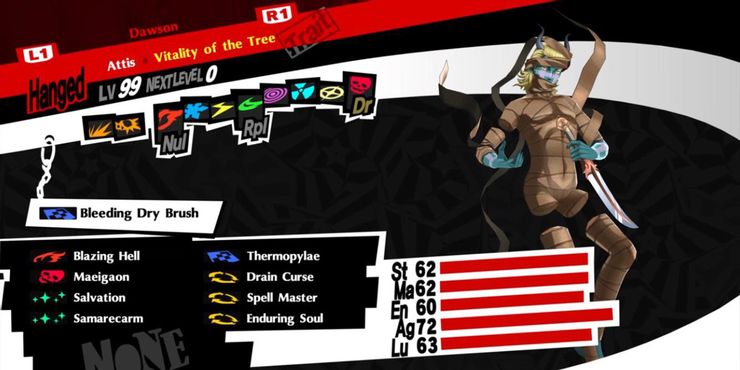Persona 5: Myths and Meaning of the Hanged Man Arcana
The Hanged Man often has the reputation of being the ill omen of this Tarot’s major arcana, and though the card is not inherently black, it signifies trials, forfeit, and the intellect earned from the two. Therefore, even though the Hanged-Man arcana is superficially connected with outlaws, its own worth is more accurately used than martyr figures. Persona 5 and Persona 5 Royal attribute Munehisa Iwai since the arcana’s confidant, the owner of this Shibuya’s version gun store, Untouchables. As a representative of the Hanged Man, Iwai’s history and the yakuza signify hard-won wisdom and underworld insight. And, like usual, his plight signifies a change of the Hanged Man’s virtues, including naivete and selfishness.
Despite Iwai’s Yakuza adventures, he considers he can outmaneuver his older rival, Tsuda, and keep his past a secret from his adopted son, Kaoru. In a feeling, Iwai is hoping to protect himself out of Kaoru’s ruling selfishly, but eyeglasses his choice as a way of shielding Kaoru from the risks of his previous. Joker handles to sort out things with Tsuda through a change of heart, and his interactions assist Iwai to open around Kaoru. The Persona series includes a background of Hanged-Man confidants torn between two opposing forces, such as fighting parents or baseless guilt tugging in a survivor.
RELATED: Persona 5: Spin the Wheel of Fortune Arcana

The Majority of the Personas from the Hanged Man are predicated on demons. They’re notable due to their high survivability and skills that enable them to endure a gauntlet of abuse. If Joker seems delicate, including a Hanged Man character to his roster might help. The majority of the mythology surrounding the personas also pertains to genuinely barbarous punishment or important league body terror, and the subsequent stories aren’t for the squeamish.
Hecatoncheires – The Hundred-Handed Ones

According to Greek Mythology, Hecatoncheires were colossal triplets born from the titans’ marriage, Uranus and Gaia. Their titles were Briareus (the vigorous), Cottus (the angry ), and Gyges (the large-limbed), but all of them shared the same distinction of being giants with fifty heads and one hundred arms. The title Hecatoncheire literally translates into”hundred-handed ones” At first blush, the lore behind them looks pretty regular; Greeks imputed earthquakes and tsunamis for their monstrous power, as they allegedly reside in the depths of Tartarus, also their lack from Hades is rather a missed chance.

Though the Chariot, Emperor, and Justice personas possess some grim histories, They light in the face of the Hanged Man’s demonic offerings and how the hundred-handed ones ended up at the underworld a significant story. When the dreadful triplets were born, their father, Uranus, instantly sensed their enormous strength and cancerous nature. Sanitized reports of this narrative explain Uranus immediately banishing his kids into Tartarus. Still, another version of the narrative says that Uranus forcibly place them back in Gaia’s womb, and Gaia was then banished to Tartarus via Cronus’ trickery. Zeus later frees the critters from Tartarus in his warfare against the Titans.
It’s unclear What prohibited knowledge Hecatoncheires is assumed to have obtained in their own insecurities. Still, they’re consistent with Persona’s topics for Hanged Man personas possessing significant staying power and large league body terror.







